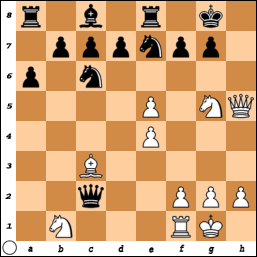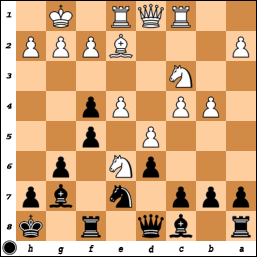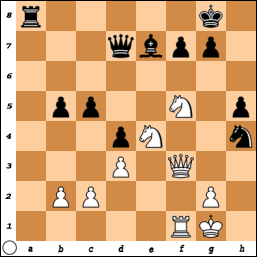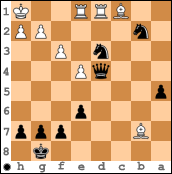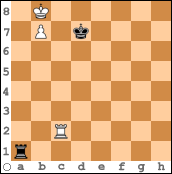1. Mastering chess is a long term project. Indeed, my last effort a year ago to continue on this journey was met with life, and life won. However, in returning to studying and playing chess, I realized that I don't have to start from scratch, which I was planning to do. Now, sometimes starting over and building a new foundation is necessary in some things in life, but if one's foundation in chess is solid, then one can just build upon it and fill in the cracks. Although I'm a little rusty, as with the other times I've had a lapse from chess and come back, it only takes a short while to shake off the rust. However, proceeding to higher levels takes point number 2...
2. Perseverance is the key. I have to thank chess coach Dan Heisman, who mentioned this in a lesson with me over a year ago, but didn't really hit me until about two days ago. In his monthly Novice Nook article on Chess Cafe, he speaks about the concept of perseverance as well. Basically, it's getting through all of the difficulties along the way for as long as it takes. So in my own journey, I have not necessarily employed this concept, but perhaps I still can (or I'm certain I still can) by getting back on the horse as they say.
3. "Building" chess mastery. The metaphor of building is a good one and I use it as a motivational tool to continue on this quest. One of the reasons I quit playing chess for a while is that I was building a deck on our back porch. It took about a month, between a full time business and family obligations, but each time I got out to work, I noticed that I was a little further than the last time. Part of my decision-making is whether to start anew in my chess journey from scratch - i.e. New opening repertoire, new approaches, a fresh start in general - or to kind of continue where I left off. The former has its benefits in that you can "let go" of the pains of the past as well as the initial motivation of starting a new "quest." However, I realized - actually just a few hours ago - that this type of "starting anew" is what I've done throughout my life - in my career and in my personal life - and although it is fun in the beginning, it often grinds to a halt when the first challenges await. So I realized that in life as well as chess, I have to face the fact - and this is a positive in chess - that I've put a lot of time into this already. I don't need to start over and I have to face the fact of my past - not to let the pains of past failures bog me down, but to take the positive from the past and "build" from it. In a way, the foundational struts have been built. In a few places, I may need to rebuild due to decay or shoddy work, but we don't have to knock down the whole building and start over.
This last point may lead some psychologists to wonder about my emotional stability, and I do believe this revelation has many implications in my overall growth as a person. In any case, the metaphor of building has me very excited.
4. A step at a time. Perhaps building from the last point, I wanted to share another little story. I was burning some brush from cutting down some overgrown bushes and at one point, I got a little overwhelmed as I looked at the task ahead - does this sound familiar? However, I decided to have a little fun and focus on the present. I just took each branch and broke them down to pieces I could put in the bon fire. I ignored the whole of the task and focused on what I had to do next. In a couple hours, the task was done, and I had a huge feeling of accomplishment and actually had fun with the task! Chess is the same way. Sometimes, instead of looking at the totality of the goal - e.g. improving tactical mastery or developing an opening repertoire - one can focus on the branch - e.g. diving into a chess problem or studying a particular model game in your opening repertoire. I plan on doing this many times over and over again, and surprise, perhaps one day I'll find myself a chess master.
Conclusion As I continue on my journey I look back at what I've already done with chess and I can smile. I've enjoyed winning a few games against fellow patzer and master alike. I've passed on the game to my children as well as others when I ran a chess club at a local elementary. I've made many friends in over-the-board tournaments and online.
I look at the future, enjoying playing chess in tournaments and with my children. Perhaps writing as my actually proficiency in the game increases. Making new friends.
But I focus on the present, building chess mastery, one step at a time.
It's good to be back.
